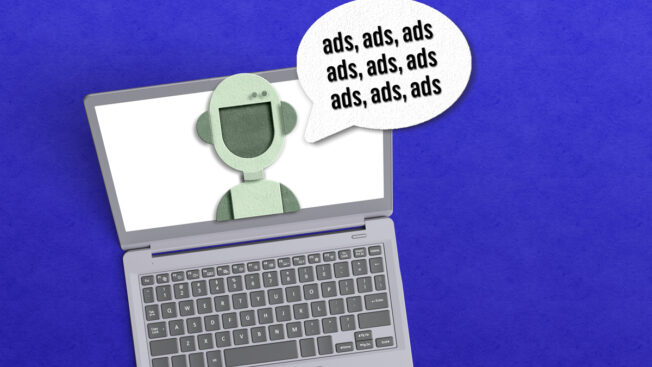Although Microsoft’s version of AI-enhanced search includes links citing publishers when queried by users, in its early testing Google’s Bard often served answers without any links or attribution.
Regardless, “[people] are less likely to click the link because the entirety is included in an AI result,” said Coffey.
Marketers have also been skeptical of links as a vehicle for ads in chat-based search engines, with the prospect of people clicking on relevant links generating tepid responses.
‘Fair use’ is still to be determined
At the center of the tech platform and publisher tussle is the legal provision called “fair use” that lets copyright content be used without permission, an area that tech companies have previously argued over.
There’s ongoing debate as to whether AI companies can legally scrape publishers’ content to train their models. According to Coffey, the court is yet to determine if this practice falls under fair use.
OpenAI’s CEO Sam Altman told The Wall Street Journal that the company has “done a lot with fair use,” when it comes to ChatGPT and is willing to pay for high-quality data, such as science, that is used to feed the AI.
Publishers have similar longstanding concerns over fair use with Google Search’s knowledge panels, which give users answers to queries without attributing relevant media properties.
Any compensation publishers seek will be hard won. Legislation letting U.S. publishers negotiate compensation is being reintroduced after being circulated in the last Congress session, this time updated to cover commercial arrangements for AI tools.
Meanwhile, Google has previously struck deals to pay publishers like News Corp for content used in Google News Showcase, a product whose release in the U.S. has stalled reportedly due to unfavorable terms for publishers.
But, companies have already got muscular with AI-based copyright infringes. In February, Getty Images sued Stability AI, a Delaware-based AI art company, alleging copyright infringements. The litigation is pending.


